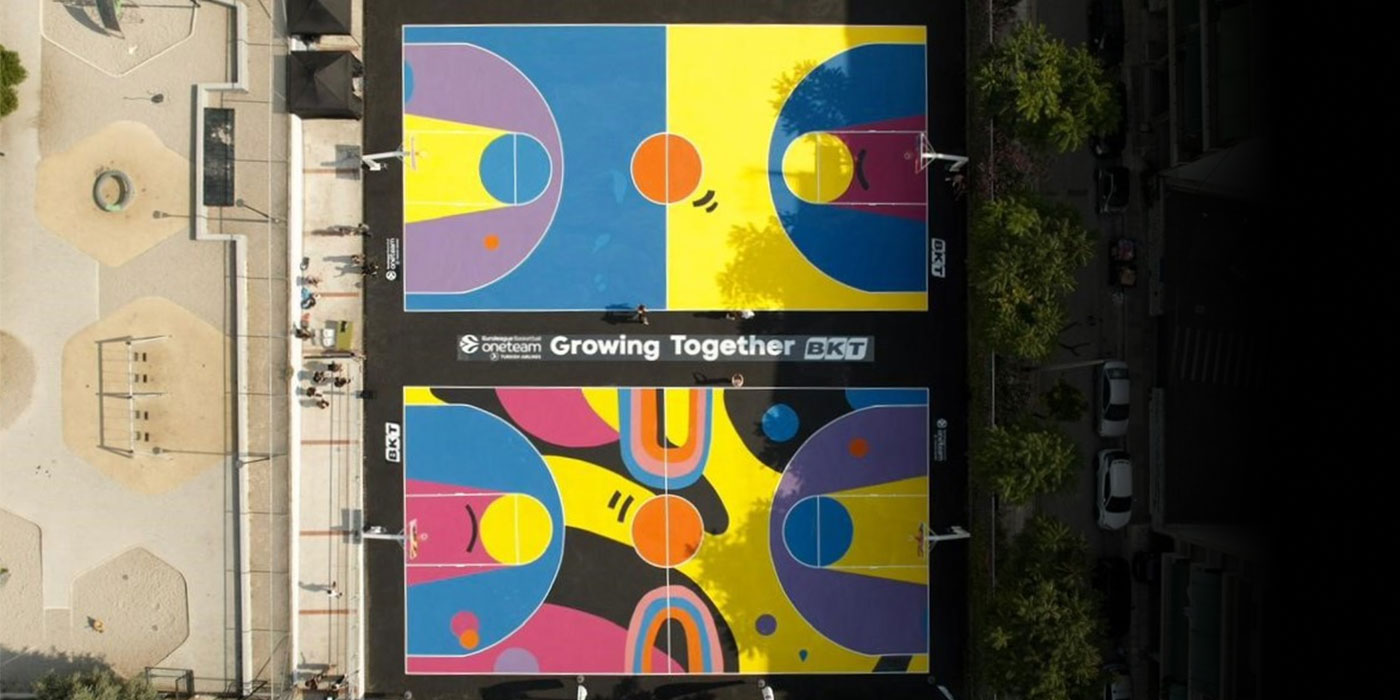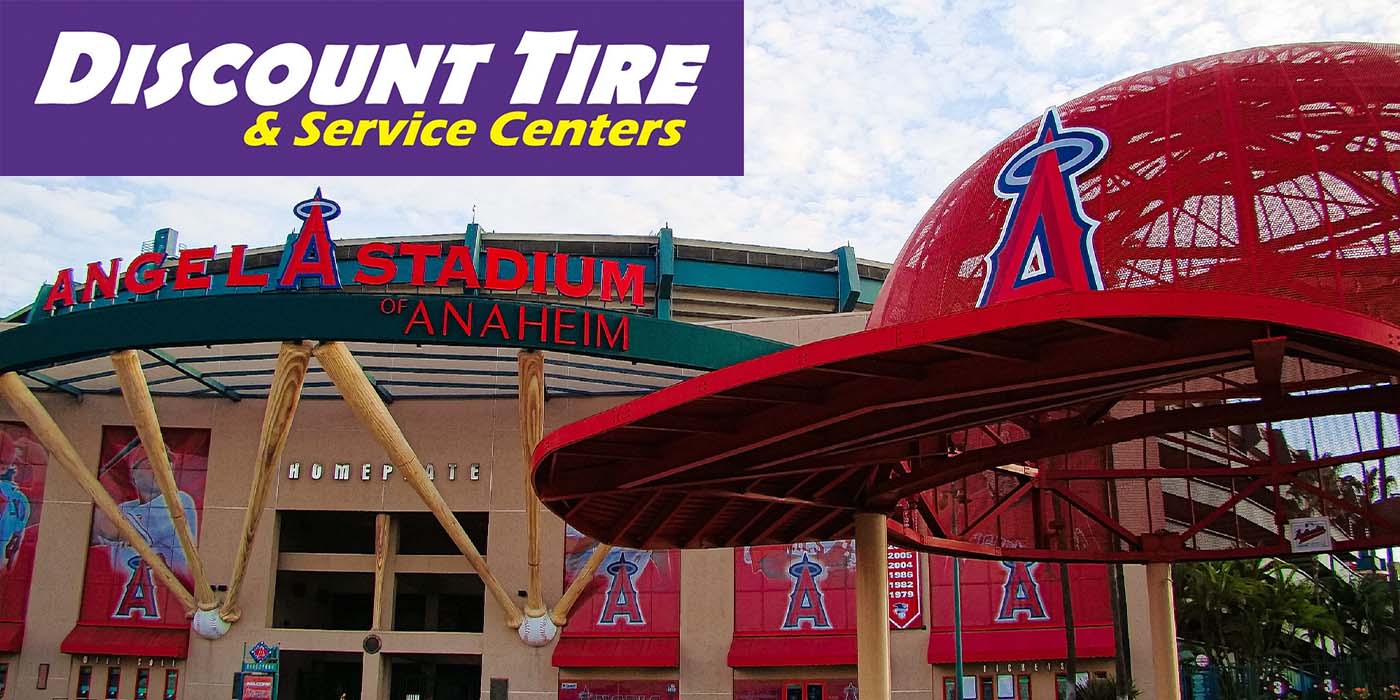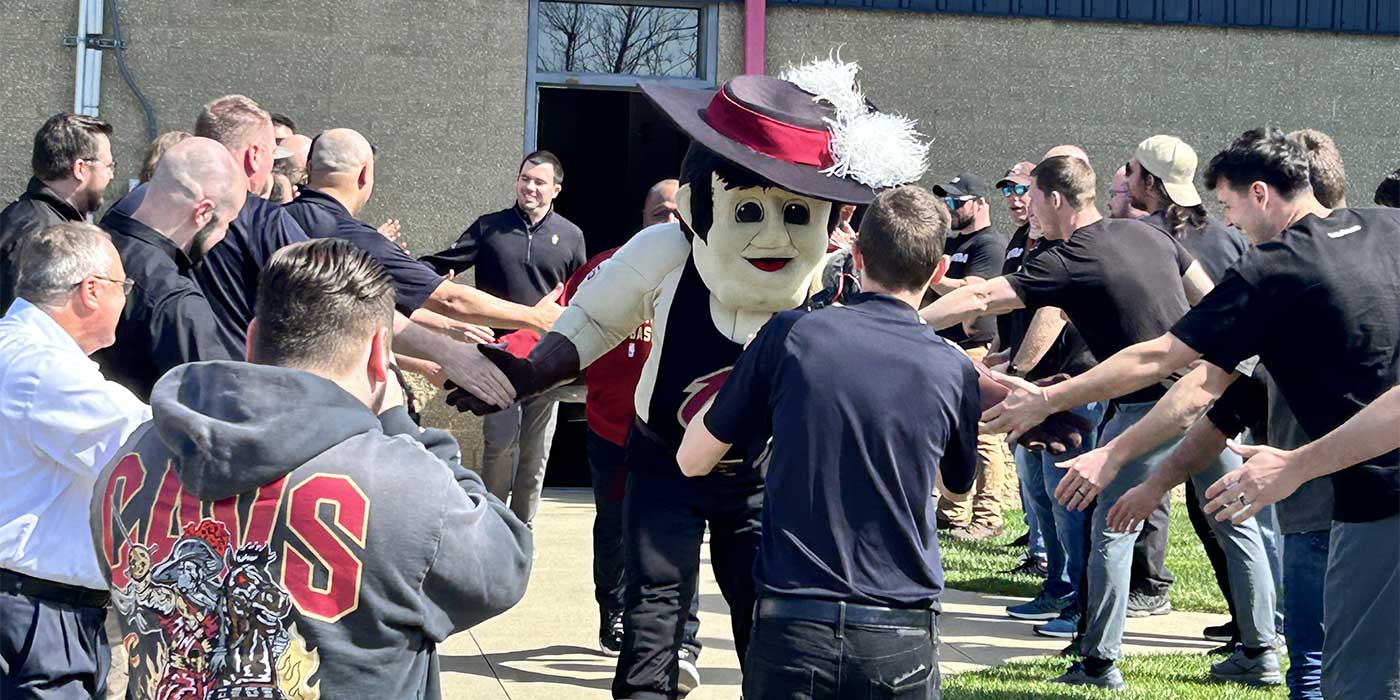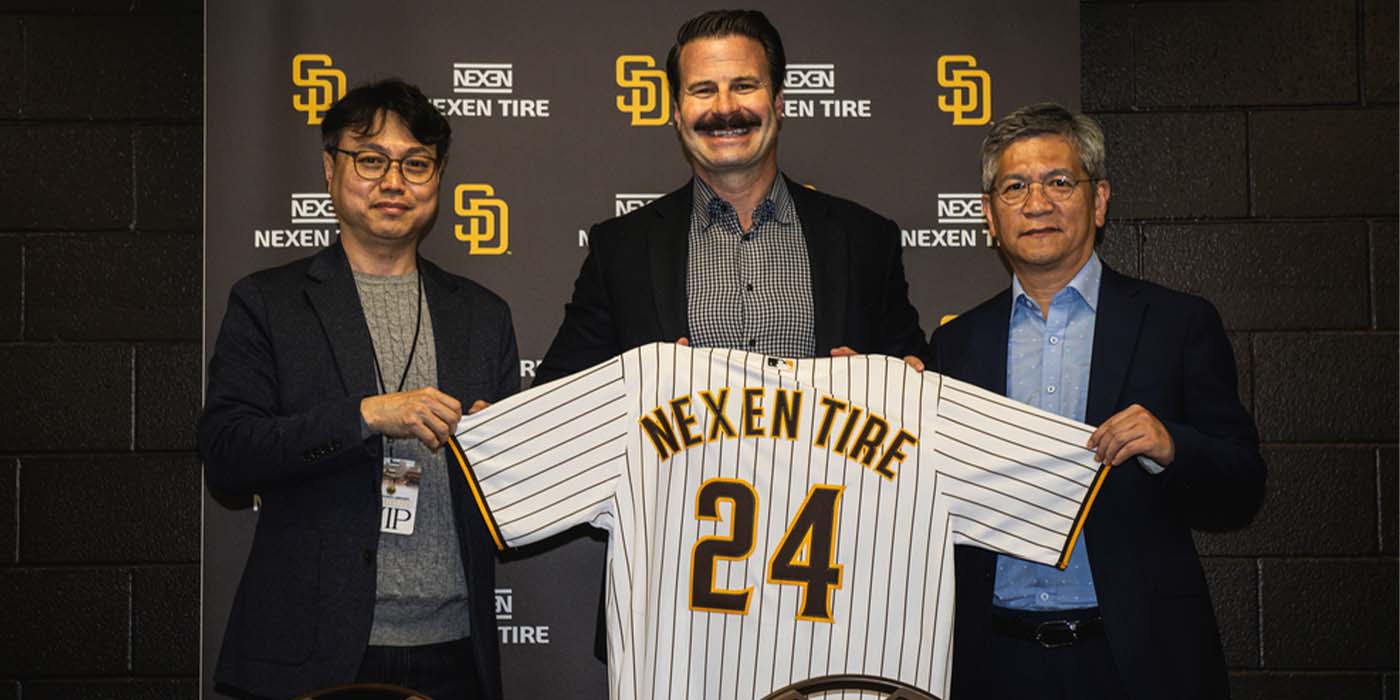g. "We are perceived as being more of a hard-core retailer, especially with Falken and the other brands we carry," Trahan said. "We’re more prone to selling products for their performance characteristics. We don’t really believe in things like Plus-4. Performance is the No. 1 thing here. The look is secondary."
Another thing that Trac Racing does is test product on its own equipment, testing what it sells and bringing that knowledge to the customer. "We’re not a big advocate of using our customers as guinea pigs," Trahan said. "But because we’re involved in racing, we can test products to make sure they work. That way, we know exactly what we’re talking about."
About the only negative Trahan sees in racing involvement is the money it takes to maintain that end of the business. "I wouldn’t even really call it a negative. When you’re passionate about something, it really can’t be a negative," he said.
But if a dealer is passionate and willing to make the sacrifices, there is one word of advice that Trac Racing offers – surround yourself with the best. "We could give (dealers) all the technical advice in the world, but the first thing is to get the right people," Trahan said. "Racing has to be approached like a business and you have to have the right people."
Driven to Advertise
How much advertising can $12,000 buy a tire dealer? Perhaps a moderate amount, if spent wisely. It certainly isn’t enough, however, to buy primetime local news interviews, create photo ops for newspapers and generate all sorts of other attention.
But it did for Dees Tire in Yukon, Okla.
Scott Deatherage began racing three years ago on a dirt track in Oklahoma City. He started at the Factory Stock level, using cars right off the street – older Cutlasses and Monte Carlos.
"I thought that is would be a good way to advertise the dealership because (that form of racing was) getting popular in the area," said Deatherage, who, along with his father Larry, are partners of Dees Tire. "Dad didn’t want anything to do with it. But I saw racing as an opportunity."
And what an opportunity it was. Thanks to racing, Dees Tire, started in 1955 by Deatherage’s grandfather, has grown from a single location to three stores and a warehouse, employing 20 people.
Deatherage started slow. He built his own car and rounded up a few sponsors, hoping to generate some awareness. Competition was stiff, with over 100 drivers to compete with week in and week out. But Deatherage made it work.
And the more it worked, the more buzz he generated. Then the dealership had a decision to make. For the last 10 years, Dees Tire has been part of the Goodyear Metro Dealers, an alliance of 17 dealerships that carry Goodyear product and advertise as a group.
Dees Tire presented its involvement in racing to the dealer group and sought its support, preaching the promotional value possible from racing. "They were real apprehensive at first," Scott said. "But they eventually saw the value."
The value was simple: the Deatherage’s were succeeding on the dirt track and other than college sports, there was no real competition for newspaper space. "They put our photo on the front of the sports section of the Daily Oklahomian," said Scott. "We don’t have pro football and there isn’t a NASCAR track in the state, so they put in the next best thing."
With the additional group support, the Deatherages entered their second year of racing by adding a second car. "We thought it would be fun for the employees to build a car themselves," Larry said. "Besides, we looked at it like, ‘If we built this, what can we do for your car?’"
Racing really paid off for Dees Tire – literally. The winnings for both of Deatherage’s cars totaled $5,000 for the season. "Considering a feature win pays $250, you have to do a lot of work to win that kind of cash," Scott said.
Figuring out what to do with the winnings was a stroke of brilliance. Dees Tire, along with the Goodyear Metro Dealers, donated the winnings a children’s hospital in Oklahoma City.
The donation brought more media attention than $5,000 worth of ads. "It’s a very worthy cause and it’s good advertising," Larry said. "You can’t buy advertising like when they’ve got you on TV handing a check to a hospital. You could spend the money elsewhere, but all you’ve done is buy an ad telling people how much you’re selling a tire for. This way we get a good amount of publicity and we can still tell people what we do."
This past season, the Dees Tire added yet another car and earned $7,000, and again donated it to the same hospital.
Scott Deatherage is now moving out of dirt track racing and heading to pro truck stock racing on an asphalt track. The goal, however, remains the same: advertise, advertise, advertise.
"The truck brings a lot of attention," Scott said. "There’s a lot of driving time from place to place and we get seen a lot. And our racing trucks look just like a NASCAR Craftsman Series truck."
Deatherage also takes his race vehicles to special events and programs, such as to elementary schools so kids can see it. And the donation of winnings will continue – along with the built in publicity.
Does all the racing and preparation take its toll? Sure. Scott and his team spend two or three nights a week getting the vehicles ready for an 18-race schedule. That’s after spending all day tending to business and customers.
"If you don’t manage your race team properly, it can be a serious drawback," Scott said. "As a team owner, you’ve got to get the right drivers and the right crew chief and crew. It’s all volunteer and they’re all working for the same goal.
"In the early 1990s, it seemed more people were doing it," Scott said. "It was more manufacturer-driven and more dealers were getting involved. But now, it’s hard to find teams that you can trust to fulfill their obligations."
Larry Deatherage has a slightly different view: "It gets pretty expensive, so that can scare away a few people. And some dealers just don’t understand this stuff. It’s a different market when you go into selling tires and custom wheels. You have to have a different set of skills."
But for dealers looking to get into racing – in some way, on some level ®“ and have no idea how to go about it, Scott Deatherage has some sound advice.
"Find a track in your area that’s the biggest venue, and go there and watch some races," he said. "Pay attention to the different classes, drivers and teams. Look for a car that is well-kept every week and look for a team that knows what they’re doing. Then go introduce yourself. They’ll be more than willing to talk to you because everyone is looking for sponsors. The rest is up to you."
But what can racing do for a dealer besides increasing their market presence? Larry Deatherage thinks sends a message to customers about the type of dealer you are and the quality of work you perform. "People want to deal with people who know what the hell they’re doing," he said.
Crawling Up Profits
Chip Brox, owner of Chip’s Grand Tire in Moab, Utah, certainly doesn’t own or drive a race car. But he’s well known in the grassroots racing community in and around his market. That’s because Brox offers his support, in terms of time and people, to the types of racing that occur in his area.
"We don’t own cars. We don’t race cars. We support BFGoodrich’s racing efforts," said Blox, an American Car Care Center affiliate who has had a store in downtown Moab for more than 30 years.
"I ‘borrow’ my workers four or so times a year to work in the pits at rock crawling events. We stay involved helping BFG at the races and that keeps our good name in front of racers and that equates to tire sales."
Moab is a hotbed for rock crawling, a type of racing where going 3 mph is considered high speed. Drivers literally crawl their vehicles over boulders, down cliffs and around obstacles the fastest way possible. "If you look at the route they take, you’d think it would be impossible to do," Blox said. "They have no regard for the vehicle. They’re just here to win."
"They" are the nearly 2,000 drivers who bring their vehicles to Moab around Easter for the Red Rock 4WD Club’s annual Jeep Safari event – in addition to numerous other races that occur throughout the year.
"For selfish reasons, I got involved with these races because the Jeeps have five tires on them," Blox said. "I was just thinking we could sell them some tires. BFG picked up on this event 10 or 12 years ago and started sending one of its race trucks to Moab. It was a show-and-tell situation at the time.
"One thing led to another and we started to put together sets of tires mounted on different wheel configurations that we lent out for the race. That, in and of itself, resulted directly in sales and got me involved in racing," he said.
The rest is history. Blox sends a couple of his employees to races throughout the year. They work in the pits, providing both service and expertise, in addition to getting the Chip’s Grand Tire name out there.
Plus, there are the intangible benefits.
"When I can send a couple tire guys and an assistant manager to the Baja 1000 or to another big race, they’re enthused about what they’re doing and it gets them charged up to work here," Blox said. "There’s a certain amount of expense for me to get my guys to a race, but I want to stay involved.
"Working at these races is very much like sending guys to a training program. It’ll create more tire sales and keep my guys knowledgeable so when a customer comes in, they’ll have the hands-on experience to know what they’re talking about."
Blox feels every tire dealer needs to be involved in racing. "It’s possible the opportunity to get into some type of racing may not have presented itself," Blox said. "And maybe some dealers don’t even know how to get involved. But they need to be active in their communities and with every organized car club in the area.
"That’s where it all needs to start. And if you get a manufacturer involved, that could do a lot more to further your efforts. But go to the local SCCA meeting, do something that gets you out there."
Sponsoring Awareness
No matter the level of competition, every race has sponsors. The EA Sports 500, the AC-Delco Challenge Series, the ARCA RE/MAX series, the Toyota-Atlantic championship series. Ditto every race team. Drivers wear patches on their suits and drive vehicles with decals, blaring the names of anything from Coke to Joe’s Retail Tire Shop in Anytown, USA.
Those with a desire – and the money ®“ to reach the masses sponsor events across the country, exchanging money for prestige and name recognition ®“ advertising.
The Tire Rack, based in South Bend, Ind., is heavily involved in racing efforts across the country, lending its name and its dollars to numerous sponsorships.
"We feel we’re supporting our customers. For us, it was the most logical way to support them," said Matt Edmonds, Tire Rack’s director of marketing.
The Tire Rack has been the title sponsor of the Sports Car Club of America’s (SCCA) Solo program for the past three years. Prior to that, it was the title sponsor of the Solo national championships. It is also the title sponsor of One Lap of America and BMW club racing, and it’s involved in several road course tracks.
"We’re very happy with the situation we have," Edmonds said. "In fact, we’re in the process of extending our relationship with the SCCA. We really support the passions of our customers and employees. This is what they love to do and we like to make it more affordable for them to participate."
The Tire Rack looks at its many sponsorships as brand-building. It’s getting its name in front of many potential consumers, who might have influence over, not only themselves, but others as well.
"It’s an advertising tool," said Edmonds. "People who go to motorsports events tend to be an automotive advisor to their circle of friends. They could end up suggesting us to people."
Edmonds understands it can be expensive for dealers to get involved on a sponsorship level. He preaches caution, because many times dealers don’t fully understand what being a sponsor entails.
"You have to approach it by setting a budget," Edmonds said. "And that needs to include the sponsorship fee and all the ways you can leverage that sponsorship – through banners, cards, displays. I think a lot of dealers get surprised by not thinking everything through. They only see the sponsorship fee."
If a dealer can get past all the other costs involved with being a sponsor, the benefits can be tremendous. Your name will be in front of a lot of people for several hours during each race. And there’s the profit potential. With your name out there, racing on the weekend could turn into retail dollars on Monday.
"We sell a lot of products used in the events we sponsor," Edmonds said. "There’s money to be made in sponsorships, a great opportunity. Dealers just have to really define what they want to get out of their involvement in motorsports and then go after it."
As you can see, these four dealers are into racing a variety of ways. Each of them is proud of what they do and the reputation they’ve built. And most importantly, each of them has turned their race involvement into profits on the retail side of their business, making the entire process worth while.













